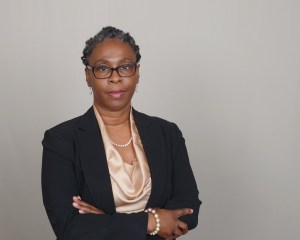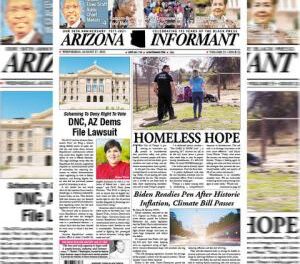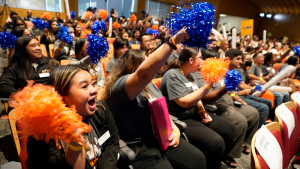By DaQuan Lawrence,
AFRO International Writer,
DLawrence@afro.com
As the March on Washington for Jobs and Freedom (MOW) gathered in the nation’s capital for the 60th anniversary of the 1963 call for civil liberties and human rights, a group of Howard University women volunteered for the event.
They were part of the Aug. 26 march that drew thousands to the Lincoln Memorial in a gathering organized by Rev. Al Sharpton, of the National Action Network, and the Drum Major Institute.
Las Vegas, Nev. native Logan Osby, 20, an architecture major, explained that she became a volunteer for the 2023 March on Washington as part of her drive to become “more involved in things going on in D.C.”
Howard University women are known for being leaders in many fields across the U.S. workforce, including government and public service, business, the mass media and communications industries. They also lead in the education, international and nonprofit fields.
Osby was not alone in her curiosity.
“I was actually in New York and I heard people talking about it. I searched and then I told my friends. Then we decided to volunteer,” Jael Colbourne, a junior media management major from the Bronx, N.Y., told the AFRO. “We applied and it really happened fast. They sent us the email and we were able to participate. I wanted to visit the Lincoln Memorial and participate in the march as a Howard student for a long time.”
Caleighsta Edmonds, an English major from Indiana, said she believes the March on Washington marked an important clarion call for African Americans even six decades after the maiden event.
“I think for sure, watching for the same thing, especially with all the events that happened [recently] and this year, such as legislative changes,” Edmonds told the AFRO. “I think that’s just kind of how history goes. You always think it’s going to be a progression, but then some things fall back.”
For some Howard women, the march was an opportunity to be part of history. Aileen Pointer, also from the Bronx, N.Y., a television and film major, said she was attracted to the experience of volunteering for a historic annual event such as the March on Washington
“I didn’t even know it was an annual event, but I wanted to participate and it’s nice and inspiring.to see all the volunteers and everybody that’s involved,” Pointer told The AFRO.
“When I first arrived in D.C. as a Howard student, I visited the Lincoln Memorial and stood where Dr. Martin Luther King Jr. delivered remarks. So, now attending the March on Washington is amazing,” Pointer said.
King’s remarks, now regarded by experts in oratory as one of the powerful speeches in U.S. history Jr. are now known as his “I Have A Dream” speech.
For Randy Davis, a junior English major from Chicago, Ill. who says she wants to be a civil rights lawyer, contends that it’s important that Black Americans remember why the march took place 60 years ago and why we continue to march.
“I think it’s important that we don’t forget the march, the ideals and the message that MLK delivered, especially with politicians calling for the dismantling of critical race theory in education systems in the south,” Davis explained to the AFRO.
Jada Carter, a sophomore education major from Memphis, Tenn., said that 60 years later, Black Americans are marching and demanding the same rights they were pushing for in 1963.
“People might like to think that White supremacy has been eradicated, but it’s just closeted,” Davis told the AFRO.
“I think we are marching for the same human rights injustices that exist in a different form. We’ve come a long way, but around the nations there are hints of the same social injustices,” Pointer said.
Colbourne believes new opportunities exist for Black Americans, but also agrees that many conditions that negatively impact Black Americans remain the same. “[Some] things did change because different racial and ethnic groups probably couldn’t come together like how we are now,” she said.
“It’s still a lot going on, and after George Floyd’s unlawful death, people around the world can see how America really treats Black people,” Colbourne concluded.
The women of Howard University continue to lead industries across America and throughout the world. Sharon Pratt, a D.C. native, is a Howard alumna and was the first Black woman to be mayor of D.C., while the current U.S. Vice President, Kamala Harris, is also a graduate of Howard.
New York Attorney General Letitia James, who filed a civil suit against former president Donald Trump and the Trump Organization earlier this year, is a Howard University Law School alumna. In addition, Fulton County, Ga., District Attorney Fani Willis, who is currently leading a state criminal investigation of Trump and his affiliates, is also a Howard University graduate.
“It’s difficult to pinpoint unity within the Black community, and in America in general,” said Carter. “The March on Washington represents that central point [of unity] that we need to return to,” Carter explained to the AFRO.
The post Women of Howard University show up for 60th anniversary of March on Washington appeared first on AFRO American Newspapers .











